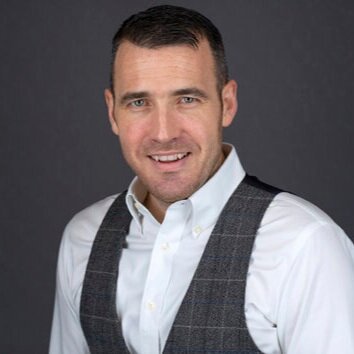My career has been built on the belief that financial advice is a noble profession. Unfortunately, we have allowed its path to be dictated by ill-informed commentators who have not internalised the challenge correctly.
You could say that our guns have been facing the wrong enemy. We continue to see advancements that are not designed to make people better investors or have better financial outcomes. Most of the media’s focus is on selection and timing, which has never been proven to work. We know success will be driven by planning and controlling natural misconceptions and biases (our “behaviour” in one word).
The work of a client-centred financial advisor is difficult enough when you consider all the factors outside of our control: investment markets, human behaviour, geopolitical events and all of life’s uncertainties. However, there are two factors which significantly increase the complexity of our work, which I have been contemplating recently.
Stumbling on happiness
For most advisors, the chief aim is to view the client as the person they are today and help them to work towards the things they think will make them happy in the future. This is where the trouble starts.
Outlined in the 2006 book, Stumbling on Happiness, author and psychology professor Daniel Gilbert explains that our brains systematically misjudge what will make us happy in the future. These quirks in our cognition make humans poor predictors of our own bliss.

At the centre of our advice is knowing what the client is working towards, which will implicitly include their own prediction of what will make them happy. Basing our advice and their financial plan on (possibly) misguided assumptions about their ideal future means that we need to constantly recalibrate their goals based on changes in their life and renewed expectations about what will bring them joy in the future.
If you are not having regular progress meetings with your clients to consider how they may have adjusted their future aspirations, I do not know how you can become a world-class advisor.
The client you haven’t met
The second factor relates to the fact that most of our client relationships are likely to last upwards of three decades. A retired couple needs to position a portfolio for three decades of income withdrawals, a working professional has a savings (accumulation) window upwards of three decades.
Research by psychologist Hal Hershfield has revealed that a person has little connection to their future self. Our future self is literally a stranger. The client sitting in front of us is not the same person that will be sitting in front of us in 30 years. If we pander to the client sitting in front of us today by giving them what they want (rather than what they may need), we are setting ourselves up for failure. Tough love, provided it is coming from the right place, may be what the future client needs in that moment.
How will your client judge the value of your work when they evaluate it in the future?
Our response
The ability to facilitate a conversation that transports the client into the future, disconnecting themselves from the present, is a skill we all need to develop and practice. Creating the space and conditions to have these conversations is a vital aspect of becoming better behavioural advisors, as is the ability to let the client ultimately guide their own plan. While we may have the technical expertise, they are the ones with greater insight into their own lives.
The ability to facilitate a conversation that transports the client into the future, disconnecting themselves from the present, is a skill we all need to develop and practice.
These skills are “soft” and difficult to learn, but by reminding ourselves that we represent the client’s future self in every interaction, we are much likelier to guide the current client towards a future in which they might stumble on true happiness, even if the journey includes a few course adjustments.
This future self will always conflict with the current self, presenting challenges to the advisor advocating for a future that cannot be imagined easily. Investing for the future, protecting against disaster, and estate planning are all made more difficult. We have a great responsibility, and we serve in a mighty profession.
My hope with Humans Under Management is to promote, highlight and build on the work that great advisors are doing in developing their behavioural financial advice practices.
For me, this is like seeing colour television, when the rest of the profession is still in black and white. This is not a fad or a phase – this is who we are.













